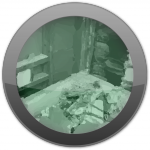Chinese Drywall

What You Need to Know
Chinese drywall was installed primarily in residential structures mostly in the south and parts of the western USA but commercial applications did occur
Has a distinctive odor similar to a burnt match smell
Most, if not all, Chinese drywall has been ½” in thickness
Will corrode copper, silver, aluminum, chrome, and some stainless steel but no galvanized metals
What You Need to Do
Conduct visual and/or X-Ray Fluorescence (XRF) testing to confirm presence
Remove drywall that is causing problems
Consideration should be given to removing any impacted metals and/or cleaning of porous materials
Myths and Misconceptions
Rotten egg odors are indicative of the presence of Chinese drywall-FALSE
Health complaints have been confirmed with exposure to Chinese drywall gases-FALSE
Air testing is a good diagnostic tool to confirm the presence of Chinese drywall-FALSE
Expert Services:
Insurance
Claims: Prevention and Response
- Site Investigations/Inspections
- Loss Mitigation Protocol Development
- Creative Scope of Work Development
- Project Oversight
- Environmental Sampling
- Cause and Origin Investigation
- Emergency Response
- Client Interface
- Communication/Alert Development
- Liability Exposure Minimization
- Expert Consultation
Underwriting: New Product Development and Risk Assessment
- New and Emerging Risk Education-Focus on New Areas of Coverage Opportunity
- New and Emerging Product/Technology Applicability to Underwriting Coverage
- Recommendations for Coverage Expansion Based on Risk Minimization Strategies
- Policy Language Review/Development Based on Industry Specific Issues
Due Diligence: Investigation, Auditing, Verification and Risk Assessment
- Project Oversight Ensuring Compliance with Policy Coverage
- Immediate Communication re Project Issues Impacting Policies
- Detailed Reports of Project Findings/Oversight with Recommendations
- Cost Estimate Development Based on Construction/Remediation Options
- Phone Surveys/Desktop Reviews Focusing on Issues of Potential Concern
Remediation Cost Auditing and Risk Quantification
- Review/Audit of Contractor Invoices
- Scope of Work Performed Analysis (Best Practices, Regulatory Compliance)
Expert Testimony
- Environmental Risk
- Healthcare Risk
Education and Training: Claims and Underwriting
- Seminars/Webinars on Environmental/Healthcare Issues Focusing on Claims/Underwriting Risk
- Seminars/Webinars on Emerging Issues and Policy Impact as well as Coverage Expansion Opportunities
- White Paper Development
Insurance Toolkits: Claims and Underwriting
- Development of Underwriting Applications for Healthcare/Environmental Risk
- Development of Value Added Risk Management Checklists/Protocols for Insureds
- Operations and Maintenance Programs for Water Intrusion Risk Management, Asbestos, Lead Based Paint
- Hazard Assessment Critical Control Point Programs (HACCP)
Insurance Risk Alert Service
- Development of Insured Alert Communications re Emergency Healthcare/Environmental Risk
- Development of Employee Alert Communications re Emergency Healthcare/Environmental Risk

